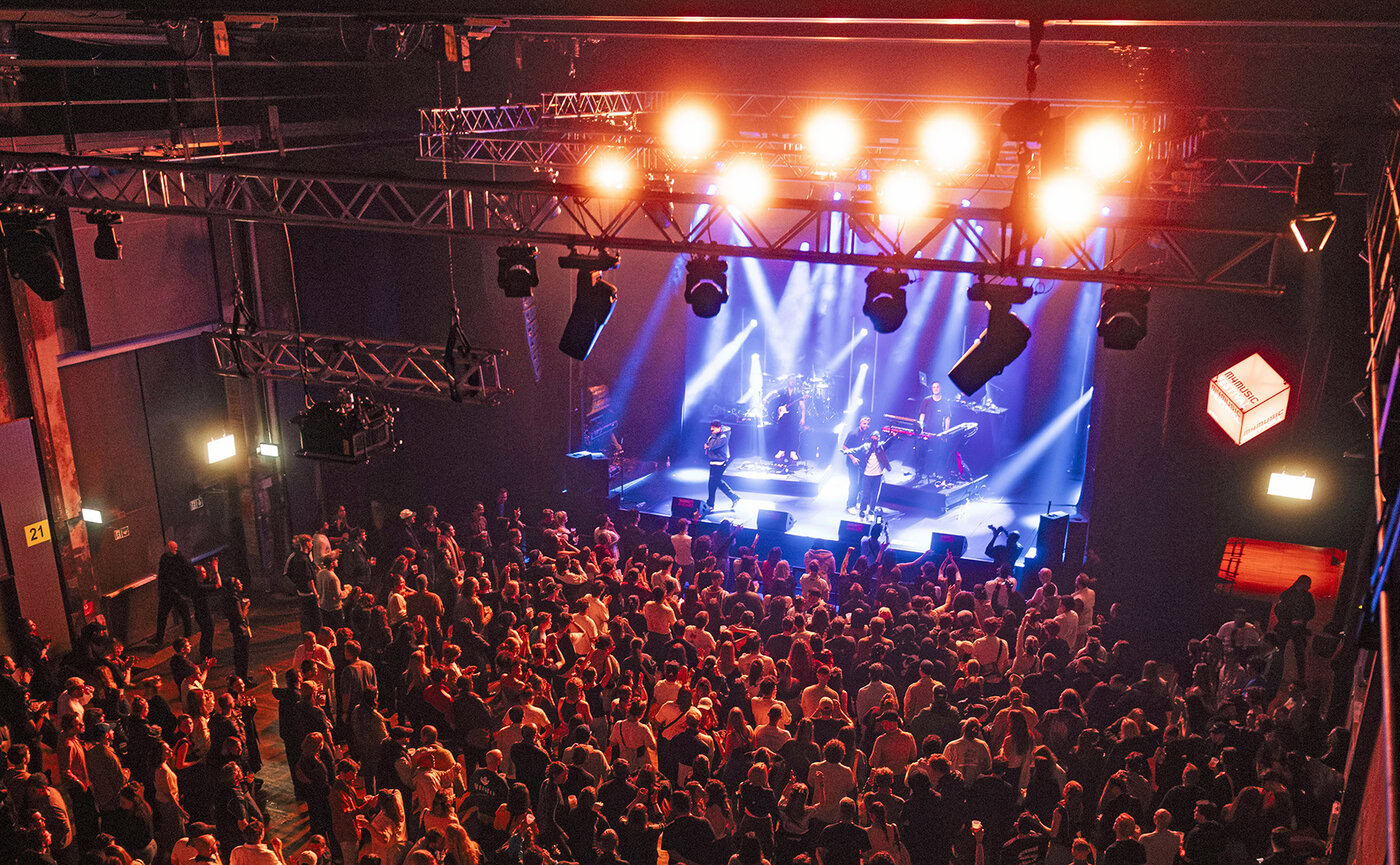m4music: Bleak prospects for club culture
In addition to concerts, the 27th edition of "m4music" once again offered panels and workshops. How concert venues and individual musicians can still finance themselves was a topic of discussion.

The two-day pop music festival organized by the Migros Culture Percentage on March 28 and 29 attracted around 1600 industry professionals in addition to 6000 visitors. More than 40 acts presented themselves on the five stages around Zurich's Schiffbau. "The Swiss music scene has shown that it is lively, diverse and innovative," said festival director and co-founder Philipp Schnyder. In addition, the event, which primarily sees itself as a platform for up-and-coming national and international artists, once again succeeded in making an important contribution to networking the music scene.
Good songs find their audience
The second day of the festival was not blessed with good weather, which is why the crowds of visitors were hardly forced outside. As a result, the audience tended to congregate in the Schiffsbau. The well-attended panel "Where should we go, we musicians?" dealt in particular with the question of the extent to which independent artists can still finance themselves at all.
Zurich-based presenter Meng Tian was active as a singer/songwriter herself until 2017. She has since switched sides and now advises brands and companies. When asked what role music promotion still plays today, Sebastian Król, founder of the Hamburg-based music agency, replied Backseatthat this is still relevant for music creators. "But music promotion is becoming less and less important," he continued. What made the entrepreneur realize that having a direct channel to their fans is more important than ever for music creators. This can be quite time-consuming, singer/songwriter Hilke Ros pointed out. "I now make a huge effort to visualize my music - and for free." She can only afford this because she works as a software developer on the side.
Digital expert Marcel Hunziker, who has been based in London for several years, took a more relaxed view of the situation: "I am and remain optimistic. Accordingly, I believe that good songs will always find an audience." At the same time, he was convinced that musicians should take care of their fan base to the extent that their own business plan provides for. "We never push our artists to create content for their followers."
Holes in the coffers
The panel "Clubs in crisis - new paths or old patterns?" met with even greater interest. Alexandra Götz, who has been the manager of the Winterthur club for almost seven years Force field referred to a survey from Zurich at the start of the discussion. It shows that the turnover of a club in the canton before the pandemic was 45 francs per guest. "Today, this is said to be 15 francs less on average." This is mainly due to the fact that the older crowd no longer found their way into the clubs after coronavirus, while the younger crowd never followed suit. As a result, Kraftfeld's finances have deteriorated rapidly. A downward trend that only had no fatal consequences for the club thanks to a successful crowdfunding campaign.
The outlook is also gloomy for the Fri-Sun in Fribourg, said its Secretary General Léa Romanens. The French-speaking Swiss woman attributed the malaise of the renowned concert venue not least to the fact that the evenings when a DJ plays are no longer profitable, which has led to a hole in the cash register. In addition, millennials - unlike previous generations - were hardly willing to work for free in clubs. This led Romanens to the realization that Fri-Son needed to reinvent itself.
Diversified or subsidized
A completely different approach was taken by the Bierhübeli in Bern. The concert and event location, which has been co-run by Dave Naef for nine years, consciously focused on corporate events early on and took over a booking agency last year. From July 2025, All Blues Konzert AG will also join the Bierhübeli family. "This will make us less dependent on international concert promoters such as Live Nation," says Naef happily.
Unlike the Bierhübeli, which has never received any subsidies, both the Kraftfeld and the Fri-Son are partly dependent on public funding. And in cities such as Winterthur and Fribourg, which are both plagued by deficits, it is not easy to conjure up additional funding. The situation is different in the canton of Basel-Stadt, which benefits in particular from its flourishing pharmaceutical industry. This is why the city canton can even afford to appoint Sandro Bernasconi as its commissioner for club culture and provide funding specifically for this purpose - thanks to a referendum won in 2024. The Fri-Son representative recognized that "her" situation cannot be compared with that of Basel. "I don't have a solution either. Perhaps all the clubs in the country should get together and call for a strike to draw attention to the endangered existence of pubs like the Fri-Son."








